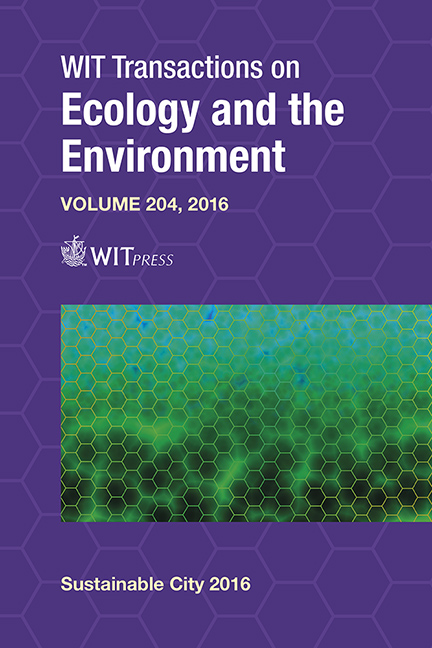Toward The Quality Assessment Of Multi-criteria Data In Planning For Housing Areas
Price
Free (open access)
Transaction
Volume
204
Pages
12
Page Range
105 - 116
Published
2016
Size
433 kb
Paper DOI
10.2495/SC160101
Copyright
WIT Press
Author(s)
J. Janusz
Abstract
An efficient accomplishment of sustainable development demands, among others, requires the incorporation of multiple and hierarchized data, combined as a result of comparative evaluation of particular criteria in the pre-planning process. Therefore, the issue of spatial design support systems (SDSS) is an extremely important, still expanding, field of research. The paper is embedded in a larger project of IT tool called FAST (Fast Simulation Tool), an original analytical model integrated with CAD software. The tool, through an object-oriented database and mechanisms of simulation, allows for both effective study of key parameters which influence the development ratio as well as its application in planning practice. It proposes a three-stage approach for the implementation in the planning process: the validation, giving a holistic balance of the key parameters for certain spatial planning entities, the simulation of the development process used for analysis and forecast, and finally, the clear evaluation of spatial scenario.
In the outlined method, the paper is focused on the creation of the framework for evaluation of the planned housing development, based on collected data and prepared information. Although the general mechanism of FAST tool has already been presented in literature, the stage connected with the multi-criteria assessment requires a wider characterization. The difficult process of synthesis of quantitative and less precise quality description of spatial development in essential terms of economical, ecological and social topics, involves the incorporation of the tool in the planning procedures, both for professionals and other decision makers. The description of the methodology for the creation of evaluation framework embedded in the study of literature and implementations is an autonomous and significant worth exposing issue. It covers the operations research in SDSS with emphasis on formulation of decision variables, their substantiation and accuracy, and on the other hand flexibility of adaptation to different situation in spatial planning. Ultimately, the goals are to explain the root model, tools for its enhancement, and finally, to explain adjusted, expert model for the decision-making process in planning of residential areas, taking FAST as a principal framework.
Keywords
FAST, GIS, spatial planning analysis, sustainable planning





